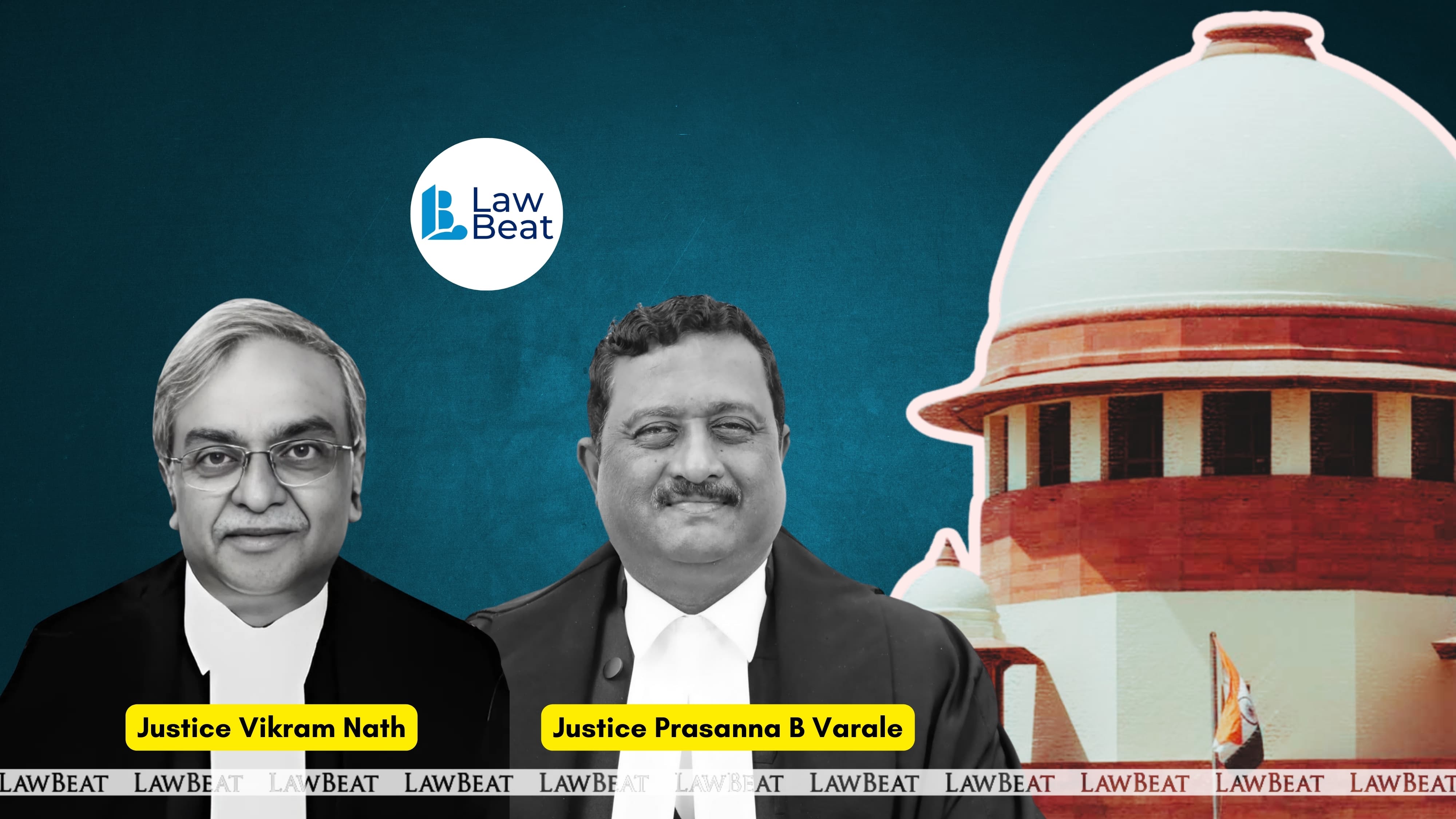'No Pre-FIR Inquiry Rule': SC Dismisses Plea by Ex-Gujarat IAS Officer

The decision in Lalita Kumari does not create an absolute rule that a preliminary inquiry must be conducted in every case before the registration of an FIR, the court observed
The Supreme Court recently emphasised that in cases where the information clearly discloses a cognizable offence, the police have no discretion to conduct a preliminary inquiry before registering an FIR.
A bench of Justices Vikram Nath and Prasanna B Varale pointed out that the legal position regarding the registration of FIRs in cases of cognizable offences is well settled. The court, in Lalita Kumari Vs Government of Uttar Pradesh & Ors (2014), has categorically held that the registration of an FIR is mandatory under Section 154 CrPC if the information discloses the commission of a cognizable offence, the bench said.
"The scope of a preliminary inquiry, as clarified in the said judgment, is limited to situations where the information received does not prima facie disclose a cognizable offence but requires verification. However, in cases where the information clearly discloses a cognizable offence, the police have no discretion to conduct a preliminary inquiry before registering an FIR," the bench said.
Court clarified that the decision in Lalita Kumari does not create an absolute rule that a preliminary inquiry must be conducted in every case before the registration of an FIR. Rather, it reaffirms the settled principle that the police authorities are obligated to register an FIR when the information received prima facie discloses a cognizable offence, it said.
The bench rejected a plea by former Gujarat cadre IAS officer Pradeep N Sharma in its judgment after noting that the allegations against the appellant pertained to the abuse of official position and corrupt practices while holding public office.
Such allegations fell squarely within the category of cognizable offences, and there existed no legal requirement for a preliminary inquiry before the registration of an FIR in such cases, it said.
The appellant’s contention that successive FIRs have been registered against him with an ulterior motive is a matter that can be examined during the course of investigation and trial. The appellant has adequate remedies under the law, including the right to seek quashing of frivolous FIRs under Section 482 CrPC, the right to apply for bail, and the right to challenge any illegal actions of the investigating authorities before the appropriate forum, the bench said.
"This court cannot issue a blanket direction restraining the registration of FIRs against the appellant or mandating a preliminary inquiry in all future cases involving him. Such a direction would not only be contrary to the statutory framework of the CrPC but would also amount to judicial overreach," the bench said.
Finding no merit in his appeal, the bench said the high court had rightly observed that courts cannot rewrite statutory provisions or introduce additional procedural safeguards that are not contemplated by law.
The Appellant challenged the judgment and order of January 31, 2024, passed by the High Court of Gujarat, dismissing his plea seeking a writ of mandamus directing the respondent authorities to conduct a preliminary inquiry before registering any First Information Report (FIR) against him for acts performed in his official capacity.
During his stint as the Collector of Kachchh District, Gujarat, between 2003 and 2006, several FIRs were registered against the appellant in connection with alleged irregularities in land allotment orders. The allegations against him primarily pertained to abuse of official position, corrupt practices, and financial irregularities in the allotment of government land. The first FIR in this regard was registered in 2010, followed by successive FIRs.
He contended that his fundamental rights, particularly his right to liberty under Article 21, were being violated due to successive and arbitrary registration of criminal cases without conducting a preliminary inquiry. He further contended that these FIRs were lodged with an ulterior motive to harass him and prevent him from effectively defending himself in the pending cases. In support of his submissions, he relied on the judgment of the top court in Lalita Kumari Vs Government of Uttar Pradesh & Ors (2014) to argue that the registration of an FIR should be preceded by a preliminary inquiry in cases involving allegations of abuse of official position.
Countering the submission as legally untenable, the state government said that once information regarding the commission of a cognizable offence is received, the police authorities are duty-bound to register an FIR under Section 154 of the Code of Criminal Procedure. It further argued that granting the appellant’s request for a mandatory preliminary inquiry would amount to granting him blanket protection against investigation, which is impermissible under law.
The state government submitted that the appellant’s reliance on Lalita Kumari was misplaced, as the judgment itself clarified that a preliminary inquiry is required only in limited categories of cases, such as family disputes, commercial matters, and medical negligence cases, and not where clear allegations of cognizable offences exist.
The appellant's counsel, however, submitted that the State’s conduct in registering successive FIRs, despite the appellant’s superannuation in 2015, reflected an ulterior motive to harass him, rather than a bona fide attempt to investigate any alleged wrongdoing.
The state counsel, on the contrary, said the appellant had sought a blanket order directing the authorities to conduct a preliminary inquiry before the registration of an FIR, which is impermissible under the settled principles of law. The counsel also contended that the appellant’s plea, if granted, would set a dangerous precedent wherein public servants accused of corruption or misconduct could claim immunity by demanding a pre-FIR hearing.
Dismissing the appellant's plea, the court clarified that this order would not preclude him from availing any other remedies available to him under the law in respect of the pending FIRs or future proceedings.
Case Title: Pradeep Nirankarnath Sharma Vs State of Gujarat & Ors
